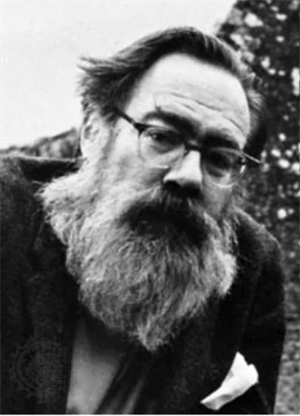PDF chapter test TRY NOW
John Berryman was born on October 25, 1914, in Oklahoma. He was an American poet and scholar in the 20th century. He stayed in Oklahoma until the age of 10 and later moved to Florida because of his father's death. It was when he changed his name to John Allyn McAlpin Berryman. His father's death shattered him to a great extent that he became isolated and took to reading. He attended the Columbia College, where he was taken under the guideship of literary scholar and poet Mark Van Doren, whom he credited for instilling his interest poetry in him. Berryman also edited the Columbia Review. He also attended Clare College, Cambridge, under a fellowship.

John Berryman*
Berryman can be considered a Confessional poet. Confessional poetry is when the poet talks about their personal life in detail without sugar coating. It is a form of confession and getting away from shame and guilt from one's actions. Berryman's earliest poems can be traced to 'Homage to Mistress Bradstreet', where he addresses America's first woman poet Anne Bradstreet. It took him around five years to write and was claimed as the 'poem of the generation' and a 'masterpiece'.
He also wrote more about his father and the separation he experienced at a young age. He wrote about how he was trying to come to terms with it for the rest of his life. His most famous poem, 'The Dream Song', deals with this theme. It was part of the collection called '77 Dream Songs', which won the Pulitzer Prize and made him notable among the post World war II generation of poets. He also wrote a second edition to this title, 'His Toy, His Dream, His Rest' which was later edited and made into a single volume as 'Dream Songs'. He introduced a character named Henry, who served as an alter-ego of Berryman. He had a great influence on famous poets like Auden and Yeats. He worked as a Professor at Harvard, Princeton University and the University of Minnesota.
Famous Works:
- The Dispossessed
- Stephen Crane
- Berryman's Sonnets
- Love & Fame
- The Freedom of the Poet
- Henry's Fate & Other Poems
Reference:
